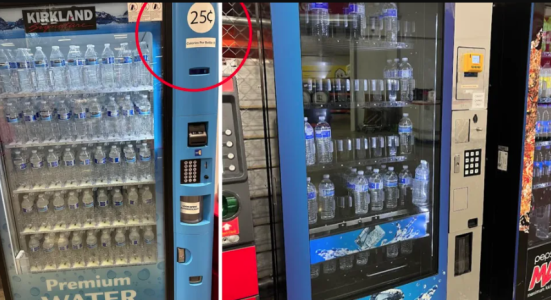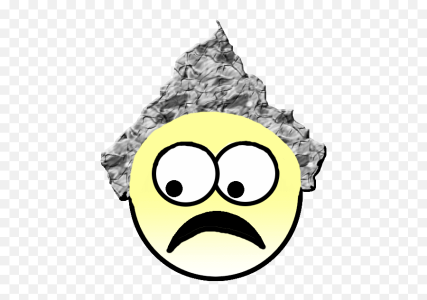'It’s a curse': Shoppers react to Costco's new 50-cent vending machines
By
VanessaC
- Replies 20
Public opinion can certainly turn swiftly, and what was once viewed as a convenience has now stirred up controversy over ecological concerns.
Costco stores offering bottled water for a mere 50 cents in vending machines has recently sparked a fiery debate online.
While bargain buys are always a welcomed treat, environmentalists reminded consumers that this low-cost convenience is a stark representation of our society’s excessive plastic consumption.
The discussion started on social media, where a user posted a photo of the cheap water available in US stores for 25 cents.
It has been confirmed that Australian stores offer a similar deal, albeit at double the price.
Australia is renowned for having some of the highest-quality tap water globally, yet the country’s consumption of bottled water doesn't reflect this.
According to a 2021 United Nations (UN) report, Australians pay the highest price for bottled water compared to any other country.
The report also revealed that Australia has the second-highest per capita consumption rate of bottled water, trailing only behind Singapore.
Independent researchers from Emerald for Sustainability support the UN's findings, stating that Australians' bottled water obsession has reached alarming levels.
The group also disclosed that the country's annual bottled water use generates over 60,000 tonnes of greenhouse gas emissions, equivalent to the emissions produced by 13,000 cars in a year.
The bottled water industry is projected to generate a revenue of $1.8 billion in Australia by 2023, according to data gathered by Statista.
The sector is also expected to grow by 3 per cent each year.
It's estimated that individual Australians spend between $45 to $500 annually on bottled water, with the average volume of store-bought bottled water an Aussie will drink in 2023 being around 27 litres.
With approximately 7 billion tonnes of plastic entering the ocean every year and over 80 per cent of marine litter found on Aussie beaches being plastic, experts urged Aussies to curb 'unnecessary' bottled water buying habits and to boycott single-use plastics in stores.
Jeff Angel, the Founder of the Total Environment Centre (TEC), attributed Australia's insatiable thirst for bottled water to a combination of 'very successful marketing and convenience gone crazy'.
'I think it's a curse the industry has put on consumers to convince them that they need the pipe water in plastic bottles, whether at home or away from home,' Angel said.
'Put it this way, before we had bottled water, there weren't many health alarms about the safety of tap water going off.'
'So the water industry has engaged in a massive marketing campaign to change people's perceptions and that's led to the enormous waste of plastic, extraction of water resources and all the energy costs involved.'
Angel noted that since state and federal governments began implementing bans on single-use plastics over the last decade, there have been some improvements in our plastic consumption. However, he warns that there is still a long way to go.
'The container [refund] schemes are making a big impact,' he claimed, referring to the reality that there are fewer plastic bottles showing up [on] beaches and other places.
However, Angel pointed out that this doesn't mean we've stopped wasting energy producing these bottles.
Meanwhile, scientists are calling for further research into the pollutant's impact on human tissue as a new plastic-induced disease has been found in seabirds.
An study done in Australia discovered large amounts of scar tissue inside the stomach lining of all 30 flesh-footed shearwaters examined.
The newly identified disease, known as 'plasticosis', was detected on Lord Howe Island, 700 km northeast of Sydney, and has been published in the Journal of Hazardous Materials by Adrift Lab in March.
 What are your thoughts on this story? Have you encountered these vending machines in your local Costco? Share your thoughts with us in the comments below.
What are your thoughts on this story? Have you encountered these vending machines in your local Costco? Share your thoughts with us in the comments below.
Costco stores offering bottled water for a mere 50 cents in vending machines has recently sparked a fiery debate online.
While bargain buys are always a welcomed treat, environmentalists reminded consumers that this low-cost convenience is a stark representation of our society’s excessive plastic consumption.
The discussion started on social media, where a user posted a photo of the cheap water available in US stores for 25 cents.
It has been confirmed that Australian stores offer a similar deal, albeit at double the price.
Australia is renowned for having some of the highest-quality tap water globally, yet the country’s consumption of bottled water doesn't reflect this.
According to a 2021 United Nations (UN) report, Australians pay the highest price for bottled water compared to any other country.
The report also revealed that Australia has the second-highest per capita consumption rate of bottled water, trailing only behind Singapore.
Independent researchers from Emerald for Sustainability support the UN's findings, stating that Australians' bottled water obsession has reached alarming levels.
The group also disclosed that the country's annual bottled water use generates over 60,000 tonnes of greenhouse gas emissions, equivalent to the emissions produced by 13,000 cars in a year.
The bottled water industry is projected to generate a revenue of $1.8 billion in Australia by 2023, according to data gathered by Statista.
The sector is also expected to grow by 3 per cent each year.
It's estimated that individual Australians spend between $45 to $500 annually on bottled water, with the average volume of store-bought bottled water an Aussie will drink in 2023 being around 27 litres.
With approximately 7 billion tonnes of plastic entering the ocean every year and over 80 per cent of marine litter found on Aussie beaches being plastic, experts urged Aussies to curb 'unnecessary' bottled water buying habits and to boycott single-use plastics in stores.
Jeff Angel, the Founder of the Total Environment Centre (TEC), attributed Australia's insatiable thirst for bottled water to a combination of 'very successful marketing and convenience gone crazy'.
'I think it's a curse the industry has put on consumers to convince them that they need the pipe water in plastic bottles, whether at home or away from home,' Angel said.
'Put it this way, before we had bottled water, there weren't many health alarms about the safety of tap water going off.'
'So the water industry has engaged in a massive marketing campaign to change people's perceptions and that's led to the enormous waste of plastic, extraction of water resources and all the energy costs involved.'
Angel noted that since state and federal governments began implementing bans on single-use plastics over the last decade, there have been some improvements in our plastic consumption. However, he warns that there is still a long way to go.
'The container [refund] schemes are making a big impact,' he claimed, referring to the reality that there are fewer plastic bottles showing up [on] beaches and other places.
However, Angel pointed out that this doesn't mean we've stopped wasting energy producing these bottles.
Meanwhile, scientists are calling for further research into the pollutant's impact on human tissue as a new plastic-induced disease has been found in seabirds.
An study done in Australia discovered large amounts of scar tissue inside the stomach lining of all 30 flesh-footed shearwaters examined.
The newly identified disease, known as 'plasticosis', was detected on Lord Howe Island, 700 km northeast of Sydney, and has been published in the Journal of Hazardous Materials by Adrift Lab in March.
Key Takeaways
- Heated debate has sparked over the display of ultra-cheap bottled water in Costco's vending machines due to environmental concerns.
- Independent researchers Emerald for Sustainability reiterated that Australians' consumption of bottled water has reached problematic levels, generating significant greenhouse gas emissions.
- Total Environment Centre (TEC) founder Jeff Angel highlighted the negative impact of extensive marketing and convenience on people's reliance on bottled water, causing unnecessary plastic waste and extraction of water resources.
- A new study has also discovered plastic-induced disease, 'plasticosis', in seabirds, prompting calls for more research into the pollutant's impact on human tissue.









